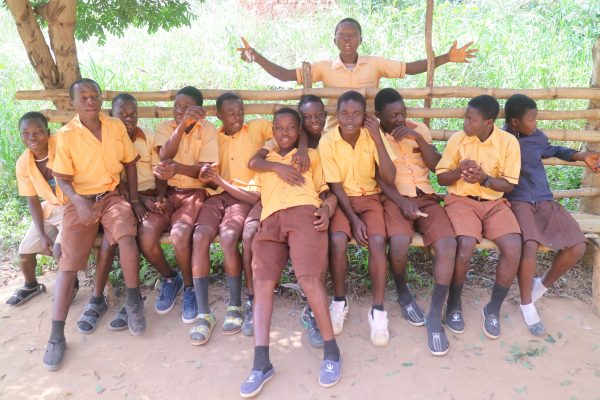In this line of work, it can be difficult to measure what your work is actually supposed to be. You get dropped off in a village and despite your preparation, you have no idea what you’re doing. In addition, you are expected to create some measurable outcome when realistically there are very few ways to do so. If you’re able to get a student garden up and running, then you can see whether using cover crops have a positive impact in areas of the garden with poor soil quality. However, when you are working with a student or another member of the local staff at Nkankama JHS or community, how could one manage to know if the impact they make is even worthwhile? I can’t speak for others who shared in my experience, but I can say that I felt what it was like to influence and be impacted by those I interacted with.
When in Ghana you try to do as Ghanaians do which means if you’re African-American you will find that you blend in more than your counterparts. This makes for an interesting experience because you are allowed to explore unhinged by the slight limitations that the average traveler might experience. When in a rural place hidden between mountains like the village of Nkankama, you might be considered an obroni (white person) simply because all of the local people don’t know who you are, even if you have been living in their village for a whole year. The people that know you the most happen to be your students, and other community members who truly respect you for doing your best at making a difference. When people see you improve things like school functionality, or maybe building and rebuilding the school garden, it will make you feel like you might actually be doing something right.
Yet, when you’re going through it, measurable impacts don’t really mean anything. It feels like work that will probably go in vain since more than likely the follow up for your time and energy is nonexistent. The realities of working in development, especially in agriculture, is that at the end of the day, no matter what happens, you can always go home back to your life before Ghana. Where things have not changed drastically and the sense of clarity, space, and freedom you felt while living in Ghana seems to be overshadowed by the pace of the United States. As my time drew near these realities made me feel a little hopeless about my development experience. What’s the point of doing something if you’re not going to really truly help somebody with what they need? Why does this even matter? Did I do enough? All these questions ran through my mind for days on end.
Prior to leaving, I sat and conversed with Sir Dan and Head Master Benjamin. We discussed a number of things including my departure from the village which made us all upset at how quickly time had moved. It was tough, I wasn’t ready to leave, I didn’t feel finished, but I had no choice. On the day of my departure, I was shocked to see so many people show up to see me off, to help me pack, to embrace me, and to show their support. Despite not feeling as though I made a truly strong impression on the village, those feelings were thwarted right before my eyes when I realized the volume of people who came to see me off. It didn’t occur to me that I had become a part of a family. From Gideon, one of my students, to Patrick my good friend and fellow teacher, to Sir Dan my 4-H Advisor. I was presented with so much compassion and appreciation in that moment that I literally became overwhelmed with emotions. That moment solidified the investment I made into the village and I soon realized the return of investment was paid with interest. My success became real through making a difference, reconnecting with a part of myself, a part of my culture, and realizing my experiences both positive and negative were a part of the growing process.
Jordan Byrd received a bachelor’s degree in Biology from Morehouse College and a master’s in Animal Science from Tuskegee University. Before becoming an AgriCorps Fellow Jordan taught high school environmental science.


